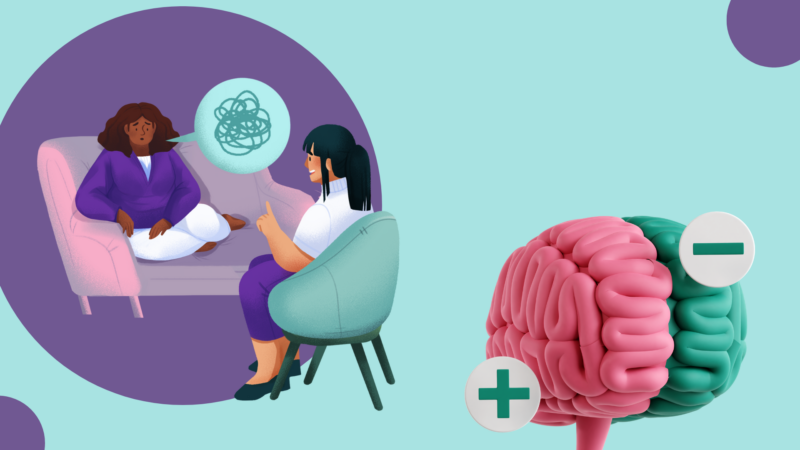Bipolar disorder is a mental health condition that causes extreme mood swings, including emotional highs (mania or hypomania) and lows (depression). These mood shifts can affect your energy, activity levels, and ability to carry out daily tasks. Learning to cope with bipolar disorder is crucial for maintaining stability and achieving a fulfilling life.
In this guide, we’ll explore practical tips and techniques to help you manage your symptoms and enhance your well-being.
Be Familiar With Different Types of Bipolar Disorder
To cope effectively, it’s important to understand what bipolar disorder is and how it impacts you. There are several types of bipolar disorder:
- Bipolar I Disorder: Characterized by manic episodes lasting at least seven days, or by manic symptoms so severe that immediate hospital care is needed. Depressive episodes typically last at least two weeks.
- Bipolar II Disorder: Defined by a pattern of depressive episodes and hypomanic episodes, but not the full-blown manic episodes of Bipolar I.
- Cyclothymic Disorder (Cyclothymic): Periods of hypomanic symptoms and periods of depressive symptoms lasting for at least two years (one year in children and adolescents), but the symptoms do not meet the diagnostic requirements for a hypomanic episode and a depressive episode.
Build a Support System
According to Columbia Associates, having a strong support system is essential when coping with bipolar disorder. Here are some ways to build and maintain your support network:
- Family and Friends: Educate your loved ones about bipolar disorder. Help them understand what you’re going through and how they can support you.
- Support Groups: Join a bipolar disorder support group, either in person or online. Sharing experiences with others who understand can be incredibly comforting and helpful.
- Therapists and Counselors: Regular therapy sessions can provide you with professional guidance and support. Cognitive-behavioral therapy (CBT) is particularly effective for managing bipolar disorder.
Develop Healthy Habits

Maintaining a healthy lifestyle can significantly impact your ability to cope with bipolar disorder. Here are some key habits to incorporate into your routine:
1. Regular Exercise
A study has shown that exercise has numerous benefits for mental health. It can help reduce anxiety, improve mood, and increase energy levels. Aim for at least 30 minutes of moderate exercise most days of the week.
2. Balanced Diet
Eating a balanced diet can stabilize your mood and energy levels. Focus on:
| Category | Examples |
|---|---|
| Whole grains | Brown rice, quinoa, and whole-wheat bread |
| Lean proteins | Chicken, fish, beans, and legumes |
| Fruits and vegetables | Aim for a variety of colors to get a wide range of nutrients |
| Healthy fats | Nuts, seeds, avocados, and olive oil |
3. Sleep Hygiene
Quality sleep is crucial for managing bipolar disorder. Establish a regular sleep routine by going to bed and waking up at the same time each day. Create a relaxing bedtime routine, and avoid caffeine and electronics before bed. Consistent sleep helps regulate your mood and energy levels, making it easier to manage daily challenges.
Consider using calming activities like reading or taking a warm bath before bed to signal to your body that it’s time to unwind. If you struggle with sleep, consult a healthcare provider for additional strategies and support.
Find the Right Medication and Dosage for You

Medications are often a key part of treatment for bipolar disorder. Work closely with your doctor to find the right medication and dosage for you. Take your medications exactly as prescribed and report any side effects to your doctor.
Try Stress Management Techniques
Stress can trigger mood episodes in people with bipolar disorder. Learning to manage stress is vital for maintaining stability. Here are some effective stress management techniques:
Mindfulness and Meditation
Practicing mindfulness and meditation can help you stay grounded and reduce anxiety. Try setting aside a few minutes each day to meditate or practice deep breathing exercises.
“Mindfulness practices are becoming part of bipolar disorder treatment. MBCT, which combines mindfulness with cognitive behavioral therapy, has shown promise for those with bipolar disorder. A 2017 study found that two years after participating in MBCT, individuals who kept practicing mindfulness experienced improved quality of life and fewer depressive relapses.”
Time Management
Organize your time to reduce stress. Use tools like planners, calendars, or apps to keep track of your schedule and set realistic goals.
Relaxation Techniques
Incorporate relaxation techniques into your daily routine. This can include activities like yoga, listening to music, or taking a warm bath.
Recognize Triggers and Warning Signs

According to Dr.Alex Klein, being aware of your triggers and warning signs can help you prevent mood episodes or manage them more effectively when they occur. Keep a mood journal to track your symptoms, triggers, and what helps you feel better. Common triggers include:
- Stressful life events: Such as losing a job, a relationship breakup, or a death in the family.
- Substance abuse: Drugs and alcohol can exacerbate symptoms.
- Changes in sleep patterns: Either too little or too much sleep can trigger mood episodes.
Set Realistic Goals
Setting realistic goals can give you a sense of purpose and direction. Break larger goals into smaller, manageable steps and celebrate your progress along the way.
In Summary
Improving your coping skills for bipolar disorder takes time and effort, but it’s totally doable. With the right tools and support, you can handle the ups and downs of bipolar disorder and live your best life.

